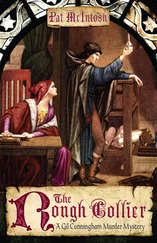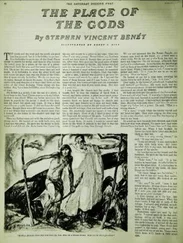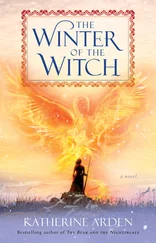“You mean the gold headdresses and necklaces?”
“Our country’s crown jewels,” Tomas said. “Only we had no Tower of London to keep them in. We were afraid they’d been stolen too, but they were eventually found in an underground vault in the Central Bank. A long time ago it had been flooded with half a million gallons of sewage water. That prevented any theft. The Baghdad batteries are missing, though, another terrible loss. Our people discovered electricity eighteen hundred years before you did. Did you ever see them?”
I shook my head.
“They were tall terracotta jars with copper rolls connected to an iron rod. When an acid like vinegar was added they produced an electric current. What a travesty that they’ve been taken.”
“A lot was saved though, I understand.”
“Thanks only to the museum staff who hid thousands of objects beforehand. They’re national heroes, those people.”
Our server interrupted to ask whether we wanted to order food. Tomas and I both declined, and I took the opportunity to switch the conversation back to the missing relic. “What does the engraving look like?”
“It’s a large tablet, oblong, two feet by fourteen inches. The words on it are in Akkadian, cuneiform chiseled into the stone. Only a few people knew about the engraving, or so we thought. Samuel, of course, me, and Hanna Jaffrey, an intern from the Asian and Middle Eastern Studies program at the University of Pennsylvania. That’s one of the problems.”
“What is?”
“Jaffrey. After we closed our camp at Nineveh she left for the town of Tell Afar near the archaeological site Tell al-Rimah. She had a boyfriend, another U of Pennsylvania intern, there. We were told she returned to America before the outbreak of the war, but I haven’t been able to contact her since. She’s simply vanished. I can’t find out if she’s really back here or still over there.”
“Surely she’d have left before war broke out?”
“Some on the archaeological team decided to remain and try to protect the sites. She may have been one of them.”
“She was at Nineveh, then, when you found the engraving?”
“Yes, last December. We were working at Kuyunjik mound.” He hesitated, in mid-sentence. “That’s—”
“I know where it is.”
It suddenly struck me that part of his stiffness had to do with nervousness about meeting me. We were circling each other like two male dogs, neither ready to trust the other.
“Nineveh is one of the legendary lost cities of Assyria,” he continued. “More than a hundred years after its discovery, there’s still an enormous amount to excavate. You’ve been on digs with Samuel, I assume.”
“Of course.” A lie . I couldn’t admit to Zakar either my lack of knowledge or my regrets. I’d begged to go on fieldwork trips with Samuel but had always hit a stone wall of excuses. “Wait until you’re older,” he’d say. When I was a teenager he found other reasons. At some point I gave up asking. He’d been generous about trips abroad. We toured Florence, the Louvre, and Berlin’s fabulous Pergamon, but I’d never set foot in the Middle East.
“I envy you that, being so young and traveling to foreign lands. Touching the history, not just studying it in school. You were lucky. Your memories of Nineveh are probably hazy after all this time. You’ll recall there are two mounds, Kuyunjik, the principal site, and Nebi Yunus, the old armory. Excavations at Nebi Yunus presented a lot of difficulty because houses have been built on some sections.”
“A shrine to the prophet Jonah was also built there, wasn’t it?” I asked.
“Yes,” Tomas replied, “another reason access to the site is limited. The shrine is sacred to Islam. But Samuel got permission to take another look at the old workings on Kuyunjik. The Antiquities Board agreed because some of the mud-brick and stone walls had become badly eroded. We had foreign financing, and part of our mission was to protect the ruins.
“For me there’s always a sense of awe when I first catch sight of the Nineveh mound. You’ll remember it’s on a flat, barren plain, and the hill rises suddenly out of nowhere. The eye can tell immediately it’s not a natural phenomenon. It has an almost spiritual presence, even now, after millennia have gone by.”
I let my mind slip back to the accounts I’d read about Nineveh, in its time the largest city in the world. Sennacherib’s magnificent palace, with massive stone statues guarding the doorways and decorative limestone panels depicting each step of the palace construction. Waterfalls, carp ponds, and eighteen canals adorned the parks where elephants, camels, and monkeys wandered free.
“What’s the condition of the excavation now?” I asked Tomas.
His thin lips turned down into something approaching a grimace. “Very poor, I’m afraid. Dirt piles and holes, mostly. It was extensively looted in the nineties. When we set up operations last year we concentrated on terrain near the Shamash and Halzi gates, areas both Layard and Hormuzd Rassam investigated.”
I knew that in Layard’s time, in the mid-1800s, archaeological excavations differed little from wholesale plunder. Early explorers focused on the flashy stuff and cut whole sections out of palace reliefs, taking what appealed to them most or what they could easily remove to ship home. Not until the early twentieth century when German archaeologists like Robert Koldewey and Walter Andrae came did photography and careful documentation of sites become standard.
“It was hard work. Our men spent most of their time constructing new braces and shoring up walls. We had to sift through large deposits of debris. The winter rains filled our trenches with water and disturbed the markers we’d so carefully laid out and photographed. A lot of it had to be redone.”
“Why pick that time of year then?”
“Our funding was good only until the end of December. We had no choice. It was one of the greatest thrills of my life. My first major project and Samuel made me a supervisor.”
“Did you find anything?”
“We made an incredible discovery. There’d been a couple of dry days, and I used them to work through a small hill of rubble. The surface was damp, but with careful troweling and brushing I made headway. That’s when I unearthed the first bone. I knew immediately that I’d found something phenomenal.”
“A burial ground?”
“No. We brought the entire team in at that point. It took us ages to uncover everything. Whole skeletons, flattened by the weight of the earth. No sign of armor, shields, or that sort of thing, so they weren’t soldiers, and of course any clothing would have disintegrated long ago. But along with a lot of ash, wood char, and bone masses we found bronze jewelry—armbands, earrings and the like.
“By that we knew we’d discovered the remains of citizens who fled as Nineveh burned. Amazing. As if we’d traveled back thousands of years. All the evidence of the catastrophe lay before us. You could almost hear the people’s cries as they choked on the black smoke and clouds of ash and as hot embers struck their flesh. Many had lethal wounds, hacked by the swords and daggers of the Medes.”
“Were there any other artifacts?”
“A few small guardian statues and cylinder seals, things people wanted to rescue from the fires.”
“Is that where you found the engraving?”
“Close by. One evening we’d worked later than usual. The sun was low in the sky. The land had beautiful reddish hues, deepened by the fading sunlight. A certain scent of the earth hangs over these old sites. I don’t know what it is—I’m sure some geologist could explain its chemical composition. But I like to think it results from the freeing of things that have lain buried for centuries, when they are released from their graves and restored to the world.”
Читать дальше












